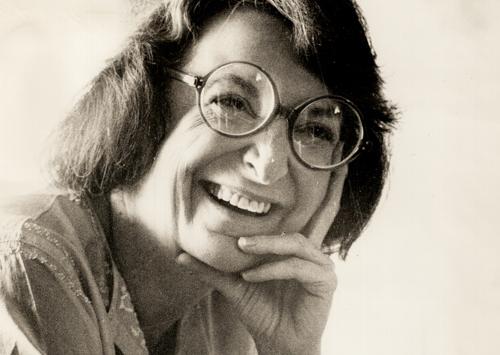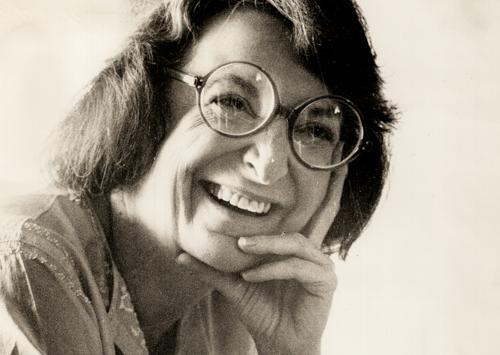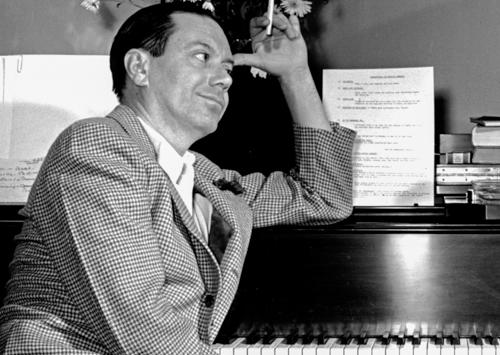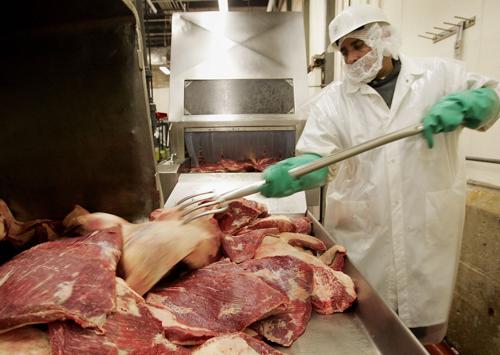Listen to New Voices on Studs Terkel our partnership with 826CHI-here! Read the Story
Showing 1 - 15 of 16 results
-
William Gibson discusses writing plays
1969 Now being a professional playwright, William Gibson talked about being able to write one of his plays in 8 days. A lot of the discussion is about his play, "The Miracle Worker". After reading one of Annie Sullivan's letters, and learning about a battle royale that Sullivan had with Helen Keller, Gibson envisioned what that battle royale would look like. It became a now famous part of the play.
-
Walter Kerr discusses his book "The Silent Clowns"
Dec. 11, 1975 Writer and critic Walter Kerr discusses his book "The Silent Clowns," about the film era's greats including Charlie Chaplin, Buster Keaton, Harold Lloyd, Raymond Griffith, and Harry Langdon. Studs begins by reading an excerpt from James Agee's "Death in the Family" with music in the background followed by Kerr reading from his book. They begin talking about how silent films affected the audience, lesser known stars Lloyd Hamilton and Charley Chase, and then analyze several famous Charlie Chaplin scenes to assess the complex nature of his characters.
-
Studs Terkel concludes his interview with Erich Lüth going more in depth on the aftermath of the war on Germany's youth ; part 4
1968 Erich Lüth's discussion with Studs Terkel is similar to part 3 but Luth offers a more in-depth conversation on the role of teachers in schools and how the time of Hitler is taught. There were those teachers that joined the party to continue their love of teaching and those teachers that were brought into the Nazi Party to follow their convictions. This lack of courage to resist influences pupils today because teachers are not saying they were cowards. The relationship is altered out of shame, and embarrassment.
-
Ring Lardner Jr. discusses the writings of his father Ring Lardner
Jul. 6, 1976 Ring Lardner Jr. discusses the writings of his father Ring Lardner, and his new book "The Lardners: My Family Remembered", discussing his family life, Mother, Father, and siblings.
-
Pauline Kael discusses her book "Kiss Kiss Bang Bang" and her career, part 2
1966 Part 2 of celebrated fim critic Pauline Kael discussing her book "Kiss Kiss Bang Bang" as well as Laurence Olivier, Sidney Poitier, safe roles, older actors, distortion of women's contributions, and Lillian Hellman's frustrations.
-
Pauline Kael discusses her book "Kiss Kiss Bang Bang" and her career, part 1
1966 Part 1 of celebrated fim critic Pauline Kael discussing her book "Kiss Kiss Bang Bang" as well as business versus creativity, struggles of young filmmakers, humiliations of older actors competing for limited roles, and limiting movies to fit on television screens.
-
Nelson Algren and Mario De Vecchi discuss "La Dolce Vita," part 1
Jun. 17, 1961 Nelson Algren and Mario De Vecchi discuss the international appeal of Federico Fellini’s film, “La Dolce Vita.” In part one, Algren and Devecchi focus on the film’s main character, journalist Marcello Rubini, and his quest for identity, particularly in relation to his interactions with the film’s intellectual character, Steiner. They discuss the film’s key metaphorical images and its portrayal of the influence of media and the emotional detachment and dehumanization it can create.
-
John Simon discusses film
Feb. 16, 1979 Film critic John Simon and Studs Terkel discuss various movies, filmmaking techniques, and how film is a newer form of art. Terkel plays an audio clip from an interview he did he with Italian actor Marcello Mastroianni.
-
James Mills discusses his book "Report to the Commissioner," his newest publication
Oct. 3, 1972 James Mills, a novelist and journalist, talks to Studs about his book "Report to the Commissioner". Mr. Mills and Studs discuss the story and Mr. Mills goes in depth into the process of police detectives working a case. Studs plays an excerpt of a Chicago policeman talking about working on the tactical squad on the police force. The policeman tells of how they go into a neighborhood as civilians to stop crime.
-
Interview with A. Scott Berg
Apr. 3, 1989 Discussing "Goldwyn: A Biography," (published by Knopf) with the author A. Scott Berg.
-
Discussing Cole Porter's work and the book "Cole" and interviewing its author Robert Kimball
1970 Cole Porter biographer Robert Kimball talks with Studs about his book "Cole" and his subject's life and work as they listen to classic performances of some of his most beloved songs. They marvel at how Porter perfectly captured the zeitgeist of the times in his lyrics, his lyrical influences, his unique method of outside-in composing lyrics and music simultaneously, Bobby Short's masterful interpretations, controversies over some of his works, and how well his material holds up.
-
David Scherman discusses “The Best of Life,” a book he edited
Oct. 12, 1973 Photographer David Scherman talks with Studs Terkel about the stories that photos can tell, famous photographers, and the book “The Best of Life,” which Scherman edited. A recording of the song “Brother, Can You Spare a Dime?” by the Weavers is played.
-
Charles Dance discusses his acting work
1980 Charles Dance, English actor, talks about his work in the British TV show "The Jewel in the Crown," based on the novel series, "The Raj Quartet," by Paul Scott. Dance also discusses his work on the play, "Thunder Rock" and film, "Plenty," and the TV shows, "The Secret Servant," and "Rainy Day Women."
-
Barbara Kopple discusses her documentary "American Dream"
Mar. 20, 1992 Academy Award winning documentarian Barbara Kopple talks with Studs about her documentary "American Dream" and the battle fought and lost by union workers in Austin, Minnesota during the mid-80s. They set the backdrop in the small, tight-knit community that Hormel Foods had such a profound impact on, how the UFCW international union declined to support the local union, the gripping dynamics between family members who crossed picket lines, and the healing that occurred when the film was screened in the town several years later.







